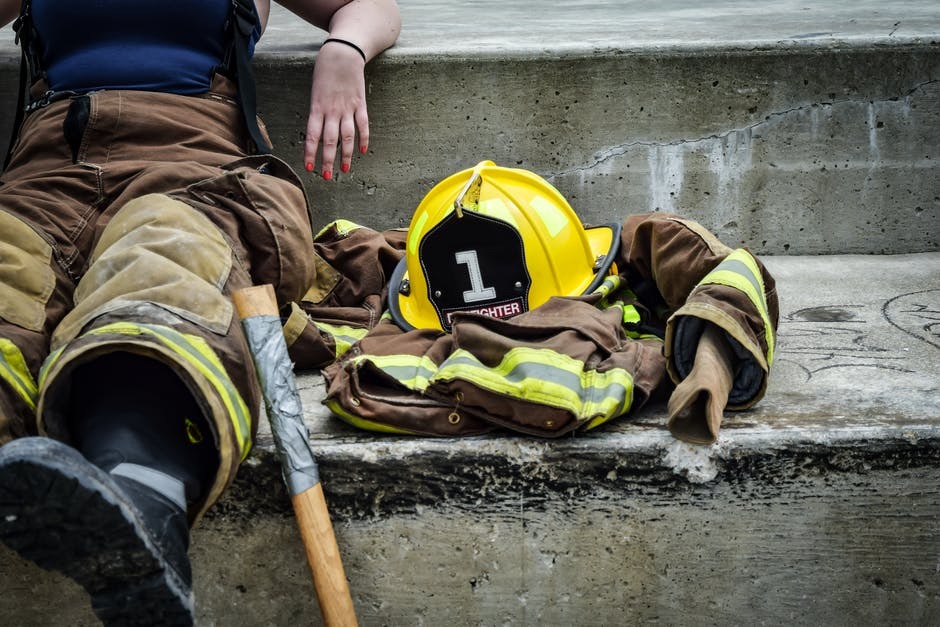First Responders in Recovery: Firefighters

May 19, 2022
firefighters endure specific types of catastrophes unique to their field
The possible lack of control and unpredictable nature of the job proves to be occupational risks that create stress for these emergency responders. If stress and trauma are left untreated, firefighter dependence on drugs and alcohol may increase.
On-the-Job Trauma
The types of work conditions for firefighters entail exposure to dangerous, emotionally draining, and physically-demanding situations.
Based on a 2011 study on “Sleep Problems, Depression, Substance Use, Social Bonding, and Quality of Life in Professional Firefighters” published in the Journal of Occupational and Environmental Medicine, firefighters reported numerous health concerns and high-risk behaviors stemming from their careers, which may include the following:
- Sleep deprivation
- Recklessness
- Nicotine/caffeine use
- Poor social bonding
Recurrent exposure to traumatic experiences and inconsistent sleep cycles can create significant health risks to firefighters’ mental well-being.
Depression Rates
According to SAMHSA’s May 2018 research bulletin on “First Responders: Behavioral Health Concerns, Emergency Response, and Trauma,” studies show that “volunteer firefighters reported markedly elevated levels of depression as compared to career firefighters,” possibly due to overarching structural barriers to mental health care such as cost, availability issues, and poor transportation.
Multiple factors can impact the development of behavioral health conditions for firefighters:
- Increased levels of depression and suicidality are more common in volunteers
- Financial demands may require volunteer firefighters to seek separate income alongside their station job, creating stress
- Organizational factors such as more rigorous screening processes within different departments can influence levels of behavioral health symptoms
Social Pressures
Social pressures can also act as additional stressors and exacerbate depressive episodes, especially in women:
- In a 2017 study, 22.2 % of female career firefighters were at risk of depression
- 38.5% of female volunteer firefighters were reportedly at risk of depression
- Female firefighters may feel added pressure working in a male-dominated field
- Firewomen also reported experiencing more job-related discrimination than their male colleagues
PTSD Among Firefighters
According to a March 2018 article in the Journal of Nervous and Mental Disease on “Posttraumatic Stress Disorder Symptoms and Suicide Risk in Male Firefighters PTSD,” firefighters who meet the criteria for PTSD diagnoses may experience symptoms associated with trauma standards. Symptoms associated with PTSD diagnosis requirements include experiences of the following for at least one month following trauma:
- Re-experiencing
- Cognition and mood swings
- Avoidance
- Arousal and reactivity changes
Suicide Rates Among Firefighters
Firefighters were measured to have higher rates of suicidality than other occupations and the general population, especially those with co-occurring disorders such as PTSD. Firefighters are also more likely to die of exhaustion and suicide than while on the job. A 2021 study in the Western Journal of Emergency Medicine concluded that 298 firefighters died by suicide as of 2020.
Substance Use
Firefighters are prone to increased rates of substance use disorders (SUDs), such as alcohol consumption.
A 2017 publication on the differences between career and volunteer firefighters found that career firefighters are more prone to problematic alcohol use and PTSD than their volunteer counterparts. The study also found:
- About 50% of male firefighters reported episodes of heavy drinking within the past month
- 9% recounted reckless behavior while drinking, such as driving while intoxicated
- 88.9% of career firewomen had consumed alcohol within the past month, with 60.5% drinking more than the daily recommended amount
Nicotine and alcohol use seems to be the most pervasive vices for firefighters of both genders. Depressive symptoms help influence alcohol and tobacco use, and it seems that firefighters who use tobacco will also have a greater risk of alcohol use over time.
Treatment and Recovery
Comprehensive training and protective factors against stress, burnout, and systematic pitfalls act as modes of preparedness that lend job knowledge and security. Additional ways to help include:
- Personal and professional support systems: Such systems can improve firefighters’ mental and emotional health, which can positively influence physical strength. Preventative measures and education programs can encourage resiliency following occupational obstacles and help firefighters recover.
- Understanding firefighter culture: Educating oneself about the firefighter culture may help those in need by creating a safe, secure environment.
- Detox and rehab facilities: Detox and rehab utilize first responder-focused therapy to address any trauma and symptoms related to the job. Substance abuse treatment can help identify the root of the problem and promote positive life changes.
- Trauma-informed treatment: Trauma-informed treatment options that manage anxiety, PTSD, depression, and substance use may be the best care methods for firefighters. Psychotherapies such as cognitive-behavioral therapy (CBT), dialectical behavior therapy (DBT), group therapy, and aftercare planning are popular methods for processing trauma and maintaining sobriety.
Vanity takes special care with trauma cases
First responders experience the disasters of life head-on. The job’s physical, emotional, and mental toll can significantly impact firefighters’ well-being. PTSD, depression, substance use, and anxiety about providing relief within the community can lead these brave men and women to use drugs and alcohol to cope. Despite available treatment options, firefighters might hesitate to seek help due to stigma. At Vanity Wellness Center, we acknowledge how our first responders can experience hardships that make them vulnerable to substance use. Our healthcare professionals lead with cultural competence and empathy to better understand where you’re coming from. We offer personalized, first responder-focused therapy to create the best treatment and aftercare plan for those on the front lines. Recovery requires work, but we know you have the bravery and determination to get through it. Learn more about our first responder-focused therapy today by calling us at (866) 587-1737.

